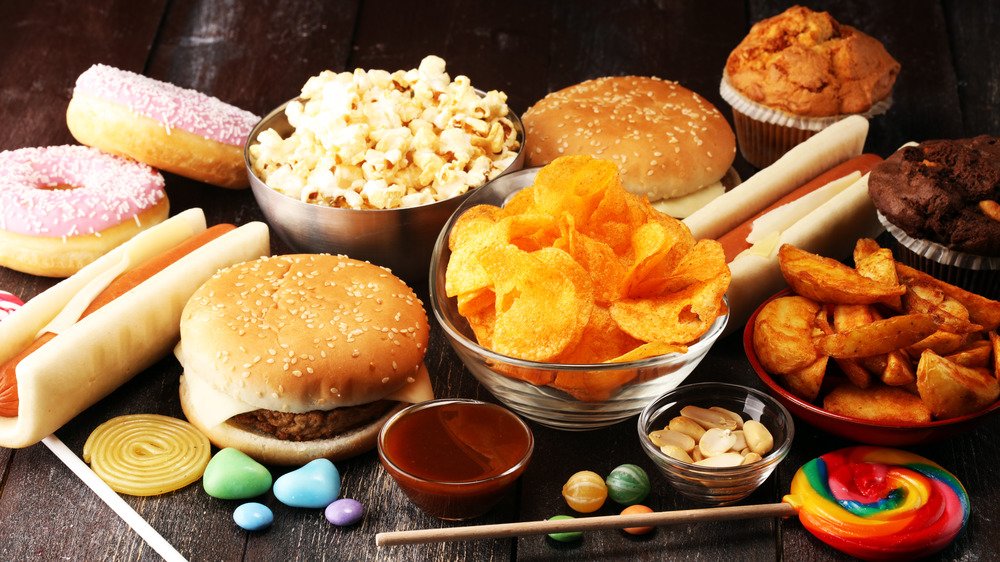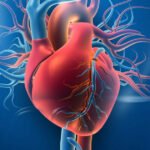Are you making these 7 common health mistakes? Learn what they are and how to easily fix them to improve your health and well-being.
Are you unknowingly sabotaging your health with these 7 stupid mistakes? Many people are, but the good news is they’re easy to fix once you know what they are.
In this article, we’ll expose the most common health blunders and provide simple solutions to help you optimize your health and feel your best. Get ready to ditch these bad habits for good!
1 Health Mistakes Accepting bad health tips and the worst diet advice
detailed table summarizing the 7 stupid health mistakes mentioned in the article.
There are 7 stupid mistakes people make regarding their health .
| Description | Explanation | Recommendation |
|---|---|---|
| Accepting bad health tips | – Blindly trusting doctors or experts without questioning – Accepting opinions as facts – Not researching thoroughly, especially for topics like vitamin D | – Question advice, even from professionals – Do your own research – Be aware of vitamin D resistance and potential need for higher doses |
| Relying on protein powder | – Protein powder is incomplete compared to animal protein – Lacks vitamins, minerals, and other nutrients found in whole foods – Doesn’t provide enough collagen (30% of body’s protein) | – Prioritize whole food protein sources – Consider collagen supplementation – Consume a variety of protein sources |
| Treating symptoms alone | – Focus on alleviating symptoms rather than addressing root causes – Common in chronic disease management – Leads to long-term medication dependence | – Ask doctors about plans to address underlying causes – Seek treatments that aim to resolve issues, not just manage symptoms – Question long-term medication use without addressing core problems |
| Reducing sodium for high blood pressure | – Overemphasis on sodium reduction – Ignores the importance of potassium – Can lead to weakness and other health issues | – Focus on increasing potassium intake – Aim for 2-4 times more potassium than sodium – Understand potassium’s role in arterial health |
| Favoring unsaturated fats | – “Heart-healthy” unsaturated fats are often highly refined – Present in most ultra-processed foods – Can cause inflammation and arterial damage | – Be cautious of “heart-healthy” claims on processed foods – Limit consumption of refined seed oils – Consider the overall impact of fats, not just cholesterol levels |
| Avoiding red meat | – Misconception that red meat is unhealthy – Ignores nutritional benefits of red meat – Lumps unprocessed red meat with processed meats | – Include unprocessed red meat in a balanced diet – Recognize red meat’s benefits for gut health – Distinguish between unprocessed and processed meats |
| Only reading nutrition labels | – Nutrition facts can be misleading – Doesn’t show the full picture of food quality – Hides problematic ingredients like hidden sugars and refined starches | – Always read the ingredients list – Watch for hidden sugars, seed oils, and starches – Be aware that starches can affect blood sugar more than labeled sugars – Look beyond the nutrition facts for a complete understanding |
Number 1 , getting the wrong advice and then accepting that advice as a fact .
You know , you go to the doctor and they might ask you about what you’re taking , and you say I’m taking these vitamins .
I’m taking magnesium , etcetera .
And they’re gonna just kinda go , oh , you don’t need that .
You can get that from your diet . And then you accept it as a fact .
Unfortunately , just because someone has an MD behind their name or even a PhD behind their name doesn’t mean they fully evaluated all the information .
They haven’t even looked at it .
They just tell you their opinion , and then you accept it .So that would be a big mistake .
And this definitely relates to a vitamin d deficiency .
There is so much valuable information about vitamin d that’s buried deep into the literature .
And if you just do a superficial look at , you know , the first 3 pages on Google , you’re probably gonna find all sorts of , bias information and , oh , yeah .
Vitamin d doesn’t do anything , and we get enough from our diet or the sun .
And that is just terrible information because so many people have vitamin d resistance .
So the normal typical amounts , even if it’s like 2,000 IUs , are not gonna do anything .
They’ll never be able to achieve this therapeutic effect .
2 Consuming protein powder
Number 2 , a person is depending on all their protein requirements from a protein powder , and it’s not complete .
Compared to animal protein , you’re not getting any vitamins or minerals or other things that are in animal meats .
Now the other thing that comes with that is when you just consume meat and you’re thinking you’re getting all of your proteins .
Did you realize that out of all the proteins in your body , 30% is collagen ?
There’s not a lot of collagen in meat .
Now if you eat a tender steak , for example , you’re only getting , like , 1 to 2% collagen .
3 Treating symptoms alone
Number 3 , basically a problem with medicine , the whole system .
You treat the symptom .You don’t really get rid of the cause .
Now I’m not talking about the doctors that are mending a bone from a fracture or if you go to the doctor for an infection .
I’m talking about how they treat chronic disease , you know , with certain pills .
A really good example is just blood sugar .So , normally , you should have a certain amount of normal blood sugar .
Even if you do eat carbs , this hormone called insulin comes in there , takes the sugar out of the blood so you can have normal blood sugars .
So , yes , that whole system of medicine is really stupid .
So the next time you’re at your doctor , ask them , is there gonna be any point in this treatment program that I’m gonna come off the medication because the medication fixed it ?
4 Reducing sodium
Number 4 , the hyper focus on reducing your salt content for high blood pressure .
I mean , in nutrition science , you need , like , twice as much potassium to sodium as far as the ratios .
I mean , it would probably be better if you had 4 times the potassium to the sodium .

So instead of focusing on lowering your sodium , which is gonna create weakness and other problems , why not increase the potassium ?
And if someone really were to evaluate what potassium does to your arteries , it keeps them flexible .
5 Consuming unsaturated fats
Number 5 , having this idea that unsaturated fats are somehow healthier than saturated fats .
And I’m talking about these unsaturated fats , the heart healthy unsaturated fats .

It is highly refined , and it’s in pretty much every single junk food , which is called ultra processed foods .
And , yes , it might lower your cholesterol a little bit , but what about all the other damage that it can do ?
And I’m talking about , like , rusting out the inside of your arteries , creating inflammation , etcetera .
6 Avoiding red meat
Number 6 , this idea that red meat is junk food .
We’ve been eating red meat for a very long time .
It still retains all the vitamins , the minerals , the other stuff that’s in there that can help you .

And yes , there’s different levels of processed meat , but to lump in the red meat with the processed meat and even , you know , state that they are both the same as far as causing cancer is stupid because red meat is 1 of the most healing things that you can consume , especially for gut health .
In fact , it was the thing to actually turn me around just within probably minutes .
I remember years ago when I was a junk food junkie , and then I just started to consume red meat for breakfast , and it was like a miracle overnight .
I just felt like the brain fog went away . I started feeling better .
7 Reading nutrition labels
And number 7 , reading nutrition facts .
This unfortunately is a very stupid mistake because if you actually started reading the nutrition facts , you’re gonna be shocked .
It’s very confusing when you focus on the nutritional facts through up here .
All these numbers right here , I mean , it gives you some data , but you really can’t tell what’s going on unless you read the ingredients .
And , of course , the first 1 is sugars .
And , of course , they have sugars hidden as other words like high fructose corn syrup , things like that .
And that’s number 1 .
And number 2 is all the seed oils like corn oil , canola , soy oil , cottonseed oil .

But number 3 , starch .
Starch is really the hidden sugar that people don’t talk about .
Let’s take , for example , this product right here .
If you look at the total carbohydrate and this is actually very interesting .
16 grams of carbohydrate .
Guess how much sugar is in here ? 0 .
If we take the 16 grams of carbohydrate , which is really hidden sugars , and then we multiply it by the number of serving sizes .
This right here is 56 teaspoons of sugar and this 1 bag of Doritos .
These refined starches act on your blood sugars worse than actual sugar , but it’s classified as 0 sugars .
You see the problem ?
A person is literally gonna make stupid choices because it’s omitted .
key Points
- Accepting the wrong health advice as fact
Just because someone is a doctor doesn’t mean you should trust them blindly. - Depending on protein powder for protein
Protein powder is incomplete compared to animal protein. It doesn’t offer the vitamins and minerals needed to stay healthy. - Treating symptoms and ignoring the cause
This is the main problem with the medical system. Healthcare practitioners prescribe medication to fix a problem instead of addressing the root cause. This is especially problematic when treating chronic disease because if you get off of the medication, the problem does not go away. - Focusing on salt reduction to reduce high blood pressure
Instead of focusing on salt reduction, which will cause weakness and other problems, focus on increasing potassium. Potassium keeps your arteries healthy and flexible. - Choosing unsaturated fats over saturated fats
Unsaturated fats like seed oils are highly refined and are in almost every ultra-processed food. Avoid them! - Avoiding red meat
Humans have been eating red meat throughout history. It’s rich in vitamins and minerals and should be included in a healthy diet. - Only reading nutrition labels
Nutrition facts can be confusing and misleading. You have to read the ingredients! Look for sugar, hidden sugars, seed oils, and starches. Starches are worse on your blood sugar than actual sugar. Many products that contain starches have 0 sugars listed in the nutrition facts.




